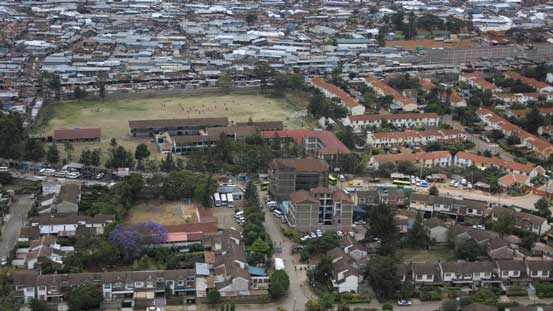×
The Standard e-Paper
Fearless, Trusted News

NAIROBI, KENYA: A low concrete wall is all that divides posh Lang’ata and the expansive Kibera slum, a settlement of tin shacks.
In many other areas, the only boundary is an imaginary one that seems to exist only in the minds of residents from both sides.